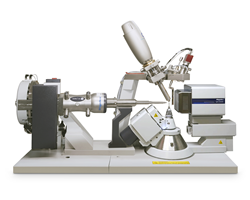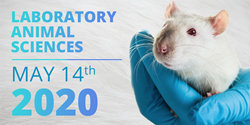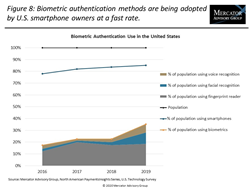
This achievement represents the first personalized neoantigen vaccine product manufactured for Geneos’ clinical studies, and I am confident [VGXI] will continue to deliver unparalleled product quality and rapid turnaround for subsequent patients as enrollment of the trial proceeds.
THE WOODLANDS, Texas and PLYMOUTH MEETING, Pa. (PRWEB)
May 19, 2020
Leading plasmid DNA contract manufacturer VGXI, Inc. announced it has completed accelerated cGMP manufacturing of the first clinical batch of a personalized neoantigen vaccine for its client Geneos Therapeutics, Inc. Geneos is focused on developing DNA-based, neoantigen-targeting personalized cancer immunotherapies. Starting with receipt of seed plasmid DNA from Geneos, the VGXI team achieved a record-setting timeline of 5 days from host cell transformation to filled drug product manufacturing, and less than 2 weeks from transformation to release and shipment of the patient’s first dose. Overall, these timelines are a fraction of the 6 to 8 month turnaround time for GMP plasmid DNA that is standard in the industry, and they have been accomplished while maintaining the exceptional product quality for which VGXI is well known.
“Decades of experience and optimization of VGXI’s established, proprietary methods for DNA plasmid purification have allowed us to support the unique requirements of our client’s project.” Stated VGXI CEO Young Park. “This achievement represents the first personalized neoantigen vaccine product manufactured for Geneos’ clinical studies, and I am confident we will continue to deliver unparalleled product quality and rapid turnaround for subsequent patients as enrollment of the trial proceeds.”
VGXI’s efforts represent a critical element of Geneos’ integrated GT-EPIC™ platform. Geneos has established a broad collaboration created specifically to achieve the rapid biopsy-to-treatment turnaround times needed for personalized cancer therapies. The full GT-EPIC™ platform includes patient tumor exome/transcriptome sequencing and identification of the relevant neoantigen targets followed by neoantigen vaccine design, synthesis of the seed plasmid DNA, vaccine manufacture, and final delivery of the personalized neoantigen vaccine – with all platform elements executed within an overall timeline of 6 – 8 weeks. The patient specific GMP product lots manufactured under the VGXI supply agreement will support Geneos’ previously announced GT-30 clinical trial focused on the treatment of patients with advanced hepatocellular cancer.
Dr. Niranjan Y. Sardesai, Geneos’ Co-Founder, President & CEO said, “Achievement of rapid biopsy-to-treatment manufacturing turnaround times is an important differentiating milestone for the GT-EPIC™ platform in enabling these personalized treatments to be available faster for advanced cancer patients. We are pleased with our plasmid manufacturing partnership with VGXI in support of our GT-30 clinical trial. With their proven GMP manufacturing expertise, VGXI rose to the challenge and has enabled us to achieve our rapid manufacturing goals.”
ABOUT VGXI, INC.
VGXI, Inc. has nearly 20 years of experience and is a leading provider of plasmid DNA manufacturing and development services. The company has a reputation of success in manufacturing DNA products under cGMP conditions for clinical trials in the US, EU, Asia, Canada, and Australia, and its cGMP and non-GMP products have passed rigorous reviews by several international regulatory agencies. VGXI’s ability to work with unique requirements and create custom manufacturing solutions is based on its patented manufacturing process, flexible cGMP production facility, and experienced development team. VGXI, Inc. is a wholly-owned subsidiary CDMO of GeneOne Life Science, Inc. To learn more, visit https://www.vgxii.com.
ABOUT GENEONE LIFE SCIENCE
GeneOne Life Science Inc. (“GeneOne” KOSPI: 011000) is an international DNA vaccine and product developer, and leading contract manufacturer of DNA plasmid-based agents for pre-clinical and clinical trials for global companies and institutions. It researches and develops DNA vaccines and products to prevent and treat incurable diseases in South Korea and internationally. The company is headquartered in Seoul, South Korea. VGXI, Inc., GeneOne’s wholly-owned subsidiary located in Texas, is a leading cGMP DNA plasmid manufacturing facility. For more information, visit http://www.genels.com.
ABOUT GENEOS THERAPEUTICS
At Geneos Therapeutics, we believe that personalized therapies are the future of cancer treatment. Our passion is to develop personalized therapies to unleash the most powerful force against cancer – your body’s own immune system. Our approach using our GT-EPIC™ platform is to target unique neoantigens (abnormal mutations produced by cancer cells) from individual patient tumors to develop novel treatments for cancer. We have an experienced management team with a track record of success in building immunotherapy-based companies. Geneos was created as a spinout of Inovio Pharmaceuticals, Inc. (NASDAQ: INO). For more information, visit http://www.geneostx.com
CAUTIONARY FACTORS THAT MAY AFFECT FUTURE RESULTS
Materials in this press release contain information that includes or is based upon forward-looking statements within the meaning of the Securities Litigation Reform Act of 1995. Forward-looking statements relate to expectations or forecasts of future events. These statements can be identified by the fact that they do not relate strictly to historical or current facts. They include words such as “anticipate,” “estimate,” “expect,” “project,” “intend,” “plan,” “believe,” and other words and terms of similar meaning in connection with a discussion of potential future events, circumstances or future operating or financial performance. In particular, these include statements relating to future actions, prospective products or product approvals, future performance or results of current and anticipated products, sales efforts, expenses, the outcome of contingencies such as legal proceedings, and financial results. Any or all of our forward-looking statements here or in other publications may turn out to be incorrect. They can be affected by inaccurate assumptions or by known or unknown risks and uncertainties. Many such factors will be important in determining our actual future results. Consequently, no forward-looking statement can be guaranteed, and forward-looking statements may be adversely affected by factors, including general market conditions, competitive product development, product availability, current and future branded and generic competition, federal and state regulations and legislation, manufacturing issues, timing of the elimination of trade buying, patent positions, litigations and investigations. Our actual results may vary materially, and there are no guarantees about the performance or valuation of GeneOne stock. It is also important to read the disclosure notice contained in many of the individual GeneOne documents available on the website, as many contain important information on such cautionary factors as of the date of the individual document. We undertake no obligation to correct or update any forward-looking statements, whether as a result of new information, future events or otherwise. You are advised, however, to consult any further disclosures we make on related subjects in our reports.
Share article on social media or email:









